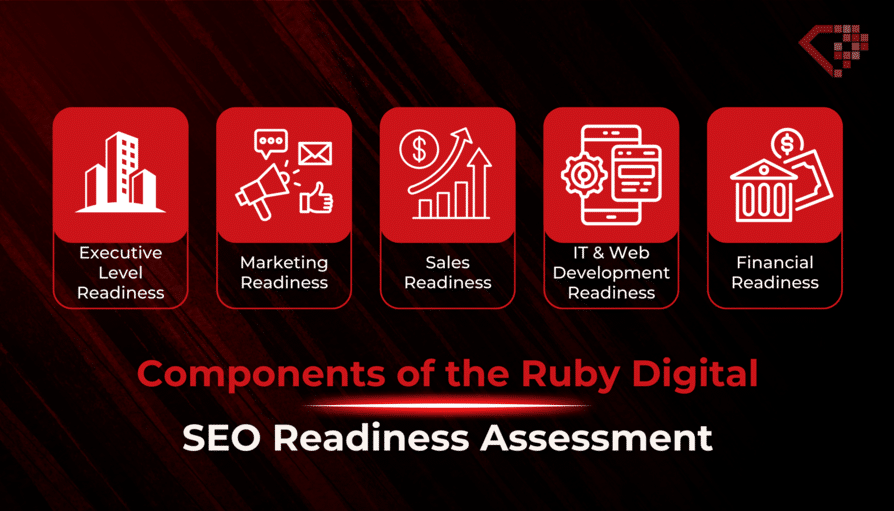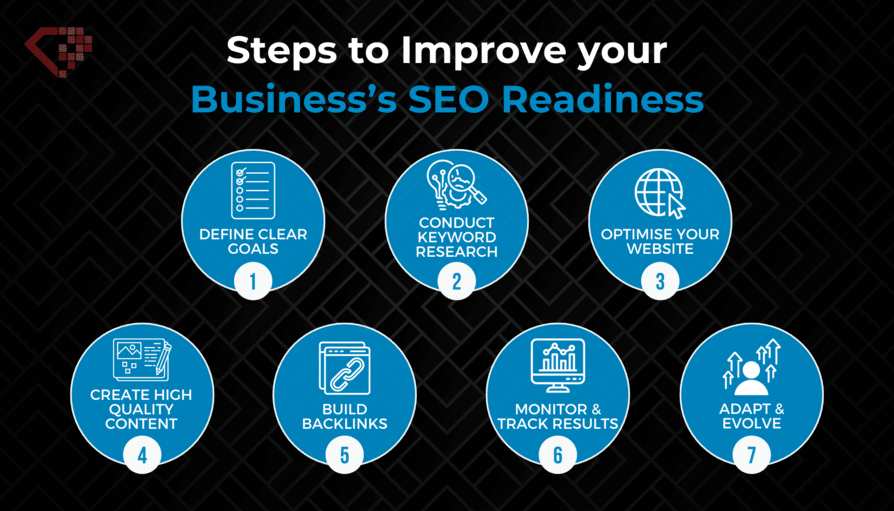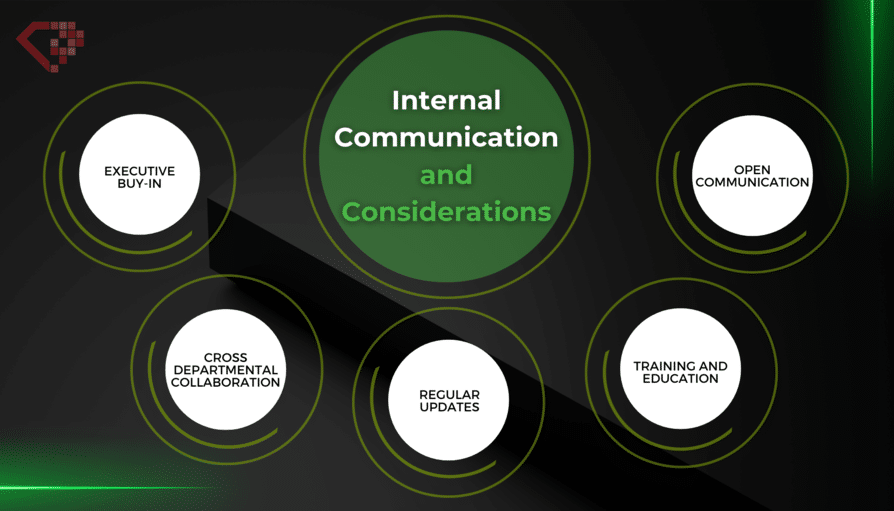SEO (Search Engine Optimisation) helps make your business visible online, driving organic traffic to your website and ultimately boosting sales. But before you dive headfirst into an SEO campaign, you first need to assess your business’s SEO readiness.
What is SEO readiness? It is the state of your business – your website, your content, your team, and your overall digital strategy – that determines how effectively you can implement and benefit from SEO. Think of it like preparing for a marathon. You would not just lace up your shoes and start running. You would need to train, understand your strengths and weaknesses, and have a plan in place.
Our SEO readiness assessment is your starting line. It is designed to help you understand where your business stands in terms of SEO and identify the key areas you need to focus on. This assessment will give you the insights you need to make informed decisions about your SEO journey.
In this post, we will break down the components of our comprehensive SEO readiness assessment and guide you through the types of questions you will need to answer. By the end, you will have a clear understanding of whether your business is truly SEO ready and what steps you need to take to achieve lasting SEO success.
What Does Being SEO Ready Mean?
SEO readiness simply means your business is equipped and ready to implement and make the most of SEO. It is about understanding your current SEO strengths and weaknesses and having the resources and expertise to execute successful strategies. Our SEO Readiness Assessment will let you know exactly where you stand.
Components of the Ruby Digital SEO Readiness Assessment
Our SEO assessment is a comprehensive tool designed to help businesses understand their current SEO landscape. It is divided into five key areas, each with a set of targeted questions to assess your company’s preparedness for SEO.
1. Executive Level Readiness
This section delves into the strategic aspects of SEO within your organisation. It assesses your company’s overall understanding of and commitment to SEO, including:
- Clearly defined SEO goals
- Leadership involvement
- Budget allocation
- Long-term commitment
By evaluating these factors, you will gain a clear picture of how SEO fits into your overall business strategy and whether your leadership is fully prepared to support its success.
2. Marketing Readiness
This section focuses on the operational aspects of your marketing team’s preparedness for SEO. It examines your:
- Alignment between marketing and sales
- Defined expectations and KPIs
- Content strategy
- Understanding of the competitive landscape
- Online reputation management
Assessing these elements reveals how effectively your marketing team is integrating SEO into their broader strategies and whether they possess the knowledge and tools to drive organic growth.
3. Sales Readiness
This section explores how your sales team perceives and utilises SEO to enhance their efforts. It evaluates:
- Understanding of SEO’s impact on sales
- Identification of SEO’s potential to improve leads
- Alignment of sales processes with SEO data
This part of the SEO assessment sheds light on how well your sales team leverages SEO data and insights to drive revenue growth.
4. IT and Web Development Readiness
This section dives into the technical aspects crucial for SEO success. It examines your website’s:
- CMS compatibility
- Mobile-friendliness and web performance
- Technical expertise
- Capacity for ongoing updates
- International readiness
Evaluating these factors reveals whether your website is technically sound for SEO and if your team possesses the expertise to address current and future technical challenges.
5. Financial Readiness
This section focuses on the financial aspects of your SEO investment. It assesses:
- ROI evaluation
- Budget alignment
- Long-term commitment
This clarifies whether your company is financially prepared for SEO, ensuring your investment is sustainable and aligned with your broader financial objectives.

How to Assess Your SEO Readiness
Now that you have a deeper understanding of the key components of SEO readiness, let us explore how you can assess your business’s preparedness for SEO success. Here are the crucial questions you need to ask yourself:
Executive Level
- Do you have clear, measurable goals for SEO that align with your broader business objectives?
- Is there a designated leader within your leadership team to champion and oversee SEO initiatives?
- Are resources allocated effectively for SEO activities, and are there clear approval processes in place?
- Is your company committed to investing in SEO as a long-term strategy?
Marketing
- Do your marketing and sales teams collaborate effectively and share data to optimise SEO’s impact on lead generation and sales conversions?
- Have you set specific, measurable targets for your SEO efforts and established relevant KPIs to track progress?
- Is there a comprehensive content strategy in place to support your SEO goals?
- Do you understand your competitive landscape and your position within it?
- Are you actively managing your online reputation by monitoring and responding to reviews?
Sales
- Does your sales team recognise how SEO can impact lead quality and quantity, ultimately influencing sales conversions?
- Have you identified ways in which SEO can enhance lead quality and streamline the sales process?
- Are your sales processes aligned with SEO insights to maximise conversion opportunities?
IT and Web Development
- Is your website built on a content management system (CMS) that supports SEO best practices?
- Is your website optimised for mobile devices and fast loading speeds?
- Do you have the technical resources and expertise to manage and maintain your website’s SEO elements?
- Are you prepared to handle ongoing technical SEO updates and challenges?
- If you are planning international expansion, is your website structured to support different languages and regions?
Finance
- Are you regularly evaluating the return on investment (ROI) of your SEO efforts?
- Is your SEO budget realistic and aligned with your expected business growth and financial goals?
- Have you allocated sufficient resources to sustain your SEO investment over time?
- By honestly answering these questions, you will gain a clear understanding of your business’s SEO readiness.
Take the Ruby Digital SEO Assessment
To simplify the process and gain even deeper insights into your SEO preparedness, we encourage you to take our free online SEO readiness assessment. This interactive tool will guide you through a series of tailored questions based on the categories we have discussed.
Upon completion, you will receive a personalised report highlighting your strengths and areas for improvement. This report will serve as a roadmap, helping you prioritise your SEO efforts and make informed decisions to enhance your online visibility and drive organic growth.
Improving Your Business’s SEO Readiness
Once you have assessed your SEO readiness, it is time to take action! Here are some practical steps you can take:
- Define Clear Goals: Collaborate with your marketing team (or a trusted SEO agency) to establish specific, measurable SEO goals that align with your broader business objectives.
- Conduct Keyword Research: Identify relevant keywords and phrases your target audience is searching for and incorporate them strategically into your website content.
- Optimise Your Website: Ensure your website is mobile-friendly, loads quickly, and is easy to navigate. Pay attention to technical SEO factors like meta tags, heading structures, and image optimisation.
- Create High-Quality Content: Develop a content calendar focused on producing valuable, informative content that addresses your audience’s needs and interests.
- Build Backlinks: Seek opportunities to earn backlinks from reputable websites to boost your website’s authority and credibility.
- Monitor and Track Results: Use analytics tools to track your website traffic, rankings, and conversions. Regularly review your SEO performance to identify areas for improvement.
- Adapt and Evolve: SEO is an ongoing process. Stay updated with the latest industry trends and algorithm changes and be prepared to adjust your strategies accordingly.

Internal Communication and Considerations
Successful SEO implementation requires a collaborative effort across different departments within your organisation.
- Executive Buy-In: Secure support from leadership by clearly communicating the benefits of SEO and its alignment with business goals.
- Cross-Departmental Collaboration: Encourage collaboration between marketing, sales, IT, and finance teams to ensure a cohesive SEO strategy.
- Regular Updates: Share SEO progress reports and insights with relevant stakeholders to maintain transparency and foster a data-driven culture.
- Training and Education: Provide SEO training for employees to enhance their understanding and ensure everyone is working towards the same goals.
- Open Communication: Encourage open communication and feedback channels to address concerns, share ideas, and optimise SEO strategies collectively.
What are the benefits of SEO for my business? By staying committed to improving your SEO readiness, you will reap the rewards of increased visibility, organic traffic, and sustainable growth for your business.

Your Path to SEO Success Begins with Readiness
By understanding and addressing your company’s strengths and weaknesses in key areas like leadership, marketing, sales, technology, and finance, you pave the way for sustainable organic growth. Remember, SEO is not a one-time fix. It is an ongoing process that requires continuous evaluation and adaptation.
Do not leave your online visibility to chance. Take the first step towards SEO success by completing Ruby Digital’s comprehensive SEO readiness assessment. Our free online tool will provide you with a detailed report highlighting your current SEO standing and pinpointing areas for improvement. Armed with this valuable information, you can confidently make informed decisions and invest your resources wisely to maximise your SEO potential.



